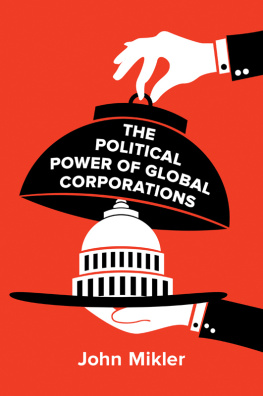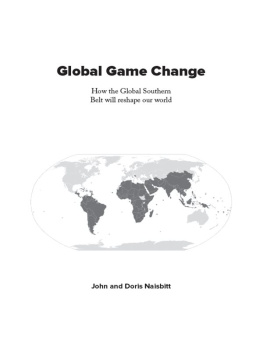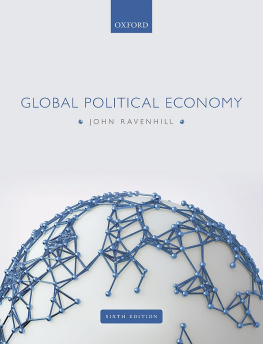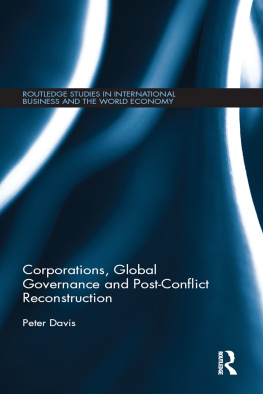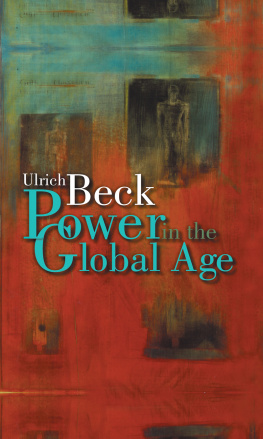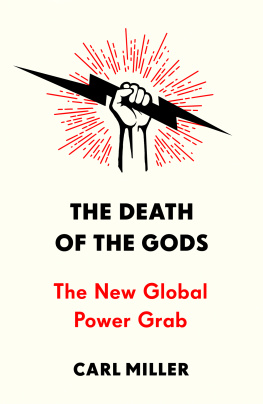Mikler John - The Political Power of Global Corporations
Here you can read online Mikler John - The Political Power of Global Corporations full text of the book (entire story) in english for free. Download pdf and epub, get meaning, cover and reviews about this ebook. year: 2018, genre: Politics. Description of the work, (preface) as well as reviews are available. Best literature library LitArk.com created for fans of good reading and offers a wide selection of genres:
Romance novel
Science fiction
Adventure
Detective
Science
History
Home and family
Prose
Art
Politics
Computer
Non-fiction
Religion
Business
Children
Humor
Choose a favorite category and find really read worthwhile books. Enjoy immersion in the world of imagination, feel the emotions of the characters or learn something new for yourself, make an fascinating discovery.
- Book:The Political Power of Global Corporations
- Author:
- Genre:
- Year:2018
- Rating:4 / 5
- Favourites:Add to favourites
- Your mark:
- 80
- 1
- 2
- 3
- 4
- 5
The Political Power of Global Corporations: summary, description and annotation
We offer to read an annotation, description, summary or preface (depends on what the author of the book "The Political Power of Global Corporations" wrote himself). If you haven't found the necessary information about the book — write in the comments, we will try to find it.
The Political Power of Global Corporations — read online for free the complete book (whole text) full work
Below is the text of the book, divided by pages. System saving the place of the last page read, allows you to conveniently read the book "The Political Power of Global Corporations" online for free, without having to search again every time where you left off. Put a bookmark, and you can go to the page where you finished reading at any time.
Font size:
Interval:
Bookmark:


Copyright John Mikler 2018
The right of John Mikler to be identified as Author of this Work has been asserted in accordance with the UK Copyright, Designs and Patents Act 1988.
First published in 2018 by Polity Press
Polity Press
65 Bridge Street
Cambridge CB2 1UR, UK
Polity Press
101 Station Landing
Suite 300
Medford, MA 02155, USA
All rights reserved. Except for the quotation of short passages for the purpose of criticism and review, no part of this publication may be reproduced, stored in a retrieval system or transmitted, in any form or by any means, electronic, mechanical, photocopying, recording or otherwise, without the prior permission of the publisher.
ISBN-13: 978-0-7456-9845-8
ISBN-13: 978-0-7456-9846-5(pb)
A catalogue record for this book is available from the British Library.
Library of Congress Cataloging-in-Publication Data
Names: Mikler, John, author.
Title: The political power of global corporations / John Mikler.
Description: Cambridge, UK ; Medford, MA : Polity Press, 2018. | Includes bibliographical references and index.
Identifiers: LCCN 2017023460 (print) | LCCN 2017036603 (ebook) | ISBN 9780745698489 (Mobi) | ISBN 9780745698496 (Epub) | ISBN 9780745698458 (hardback) | ISBN 9780745698465 (pbk.)
Subjects: LCSH: International business enterprisesPolitical aspects. | Business and politics. | International relations.
Classification: LCC HD2755.5 (ebook) | LCC HD2755.5 .M55 2018 (print) | DDC 322/.3dc23
LC record available at https://lccn.loc.gov/2017023460
Typeset in 10.5 on 12 pt Times NR
by Toppan Best-set Premedia Limited
Printed and bound in Great Britain by CPI Group (UK) Ltd, Croydon
The publisher has used its best endeavours to ensure that the URLs for external websites referred to in this book are correct and active at the time of going to press. However, the publisher has no responsibility for the websites and can make no guarantee that a site will remain live or that the content is or will remain appropriate.
Every effort has been made to trace all copyright holders, but if any have been inadvertently overlooked the publisher will be pleased to include any necessary credits in any subsequent reprint or edition.
For further information on Polity, visit our website:
politybooks.com
For Kara, Annika, and Erin
Over lunch one Arctic winter's day in 2013, while I was on sabbatical as a Visiting Fellow at Durham University, David Held suggested I should write a book on the political power of global corporations. My Handbook of Global Companies was on the verge of being released, and he thought I might be in a good position to say something about the topic. You know: theory, framework, key examples, that kind of thing, he said. It seemed like too big a topic for one book, and while I was flattered to be asked I was less than enthusiastic about the possibility of writing it at the time. Without his encouragement I doubt I would have taken on the task, and the idea grew on me until four years later the result is this book.
On the way, the central themes emerged primarily as a result of discussions with students. For me teaching is a joy, and actually my main source of intellectual stimulation. I hope it is for my students as well. It seems wrong to single out any individuals, yet I feel I owe Harry Maher a debt of gratitude. He took my senior undergraduate globalization subject in 2015, and in one tutorial I found myself responding to his well-informed critique of neoliberal globalization with the exclamation: I don't need neoliberalism, I don't need to talk about markets, market forces and marketization to understand the power of the world's major corporations! I know who they are, I know their names, I know where they come from, I know where they go to, and I know what they do! Everyone laughed at how surprisingly (including to me) worked up I had got. Some agreed with my impassioned response while others disagreed, but at that moment I realized what had to be at the core of a book on the political power of global corporations: an explicit focus on them as political actors, and re-territorializing them as reflecting geopolitical patterns of power rather than stressing their transnationality.
There are so many people to thank in the writing and completion of this book, I am bound to leave somebody out. I hope they will forgive me if I do.
Before the invitation to write this book and the 2015 eureka moment mentioned above, I have found the work of Stephen Wilks and Doris Fuchs hugely influential. They are not the only ones to speak truth to the political power of global corporations, but for me they do so with flair and clarity. They are nothing less than the inspiration behind this book.
For making the project a possibility, and enabling it, Louise Knight, Nekane Tanaka Galdos, and all the team at Polity cannot be thanked enough for their support, advice, and encouragement at every stage.
So often the focus for academic research is on sources of funding, when what is most valuable is time. I am grateful to the University of Sydney for granting me a six-month sabbatical to complete the book in 2016. I am also particularly appreciative of the understanding and support of Colin Wight and Simon Tormey as respective Heads of the Department of Government and International Relations and School of Social and Political Sciences.
For reading and commenting on drafts of the entire manuscript I am grateful to my wife, Kara, and Ainsley Elbra. Ainsley also deserves thanks for her research assistance, and especially her remarkably extensive knowledge of the literature on private governance, as well as its practice. For their invaluable advice and suggestions, I am grateful to Linda Weiss, Nicola Phillips, Graeme Gill, Tony Payne, Tom Hunt, Genevieve LeBaron, Adam Barber, Damien Cahill, Jason Sharman, Richard Eccleston, Anika Gauja, Rodney Smith, Madison Cartwright, Tabitha Benney, Shahar Hameiri, Stephen Bell, Andrew Hindmoor, Elizabeth Thurbon, Wes Widmaier, Karsten Ronit, Susan Engel, Susan Park, Matthias Hofferberth, Delphine Rabet, Hannah Murphy-Gregory, James van Alstine, Duncan Wigan, Aynsley Kellow, Jan Fichtner, David Held, Eva-Maria Nag, Caner Bakir, Fred Gale, Laure Astill, Lyne Latulippe, Alison Christians, and Stewart Jackson.
For their stimulating discussions and insights that have informed, and indeed changed, the book's contents, Sophie Roberts, Brian Coughlan, Imogen Fountain, Rob Clark, Rachel Holden, Danny Bielik, Ellis Zilka, Gillian Ramsay, Sundran Rajendra, Jill Greatorex, Chris Anastopoulos, Ken Engsmyr, and Teresa Moffett deserve thanks. And of course, the Wednesday-night tennis crew: Paul Thurloe, Belinda Mullen, Jim Leeper, Joanne Corcoran, Lachlan Habgood, Paul Sanderson, and Ben Clarke. Not only have they been supportive and offered their opinions, but they have put up with my post-match diatribes on a weekly basis when they had every right to feel entitled to enjoy a quiet beer. My thanks also go to friends in the corporate world for their insights, advice, and suggestions, particularly Stephen Ferris, Ian Taylor and Rob Grierson. Our long discussions, which I tell colleagues constitute fieldwork, are always a pleasure. To friends and family I have not named, please know that without your love and support completing this project would have been impossible.
Next pageFont size:
Interval:
Bookmark:
Similar books «The Political Power of Global Corporations»
Look at similar books to The Political Power of Global Corporations. We have selected literature similar in name and meaning in the hope of providing readers with more options to find new, interesting, not yet read works.
Discussion, reviews of the book The Political Power of Global Corporations and just readers' own opinions. Leave your comments, write what you think about the work, its meaning or the main characters. Specify what exactly you liked and what you didn't like, and why you think so.

